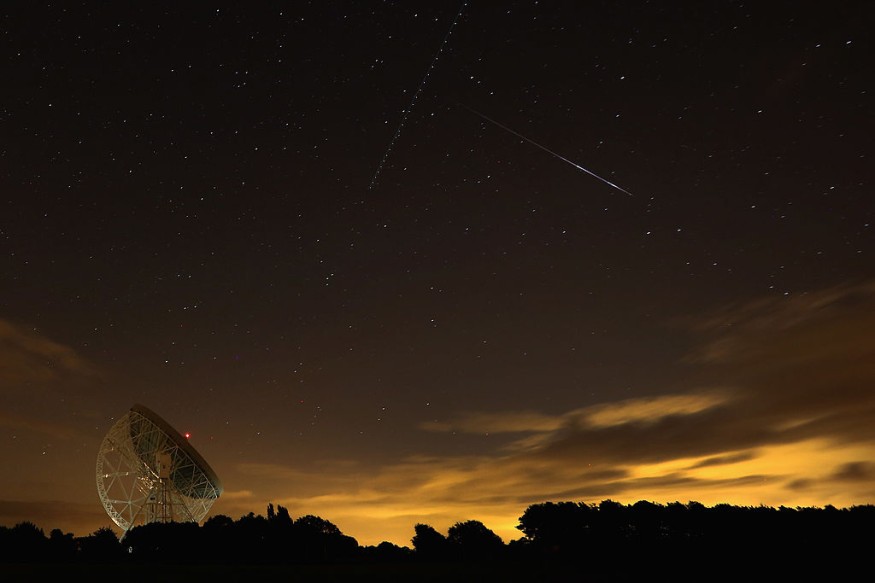
Scientists are currently on a hunt for a fallen meteorite after a massive fireball was seen streaking over the west of England last Wednesday night.
According to Daily Mail, fragments of the meteorite may have landed south of the market town of Shrewsbury. The scientists from the UK Fireball Alliance (UKFAll) have spent the Easter bank holiday weekend searching for the space rocks, but have not yet located any.
The alliance, which aims to recover freshly-fallen meteorites in the UK, had appealed to the local community to help with the search. Led by staff of the Natural History Museum, UKFAll is a collaboration between the UK's academics and citizen scientists interested in meteor observation and meteorite recovery.
Search for 'Dark Shiny Rocks'
If you are a resident living near the meteorite fall zone, you may want to check your doorbell camera or dashcam for possible footage of the fallen light.
"We think about 500g of meteorite survived to the ground in approximately four fragments just south of Shrewsbury," said Dr Luke Daly of UKFAll and the University of Glasgow. The scientist says that they are "literally looking for a needle in a haystack" due to the amount of wheat and oilseed rape in the area. The alliance is asking people in the area to notify them if they've found anything interesting in their back gardens or driveways over the bank holiday weekend, for them to get a better approximation of where it fell.
"The more footage we have, the better we can model where it landed Ashley King from the Natural History Museum, and part of the UK Fireball Alliance, told The Times.
However, scientists at the University of Manchester reminded the public of tips in case they've found a piece, which would most likely appear in a "glossy black or brown color" with the dark crust broken off in places.
"The meteorite won't be hot and is as safe to handle as any other rock, but please don't pick it up with your bare hands as that would contaminate the stone," said Professor Katie Joy of the Department of Earth and Environmental Sciences.
An Unusual Occasion
Although meteorites have been discovered a few dozen times; it is not all the time that you see one traced to a specific impact. Witnessing this kind of occasion allows scientists to calculate the meteorite's trajectory and determine where in the solar system it came from.
Over a year ago, UKFAll scientists had also just retrieved a meteorite in a family home in the town of Winchcombe, Cotswolds. This event lit up the sky over the UK and northern Europe some time in February, 2021. Scientists identified the space rock as an unusual CM2 carbonaceous chondrite type.
Calcium aluminum inclusions (CAIs ) which can be found in CM2s are the first materials to have formed in the solar nebula from which our solar system was created, and the oldest matter humankind can see and touch. It was thought that the Winchcombe meteorite travelled more than 110 million miles from its 'primordial home'.
Related article : A Swarm of Massive Sunspots Recently Visible Could Swallow Earth Whole
© 2025 NatureWorldNews.com All rights reserved. Do not reproduce without permission.





